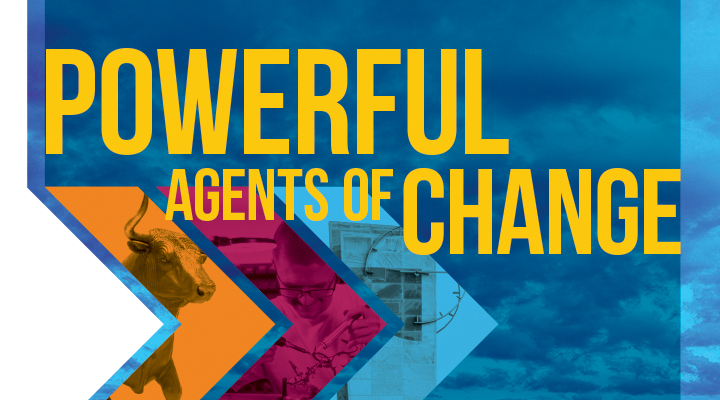CMU makes history as Colorado’s first institution of higher education with an all-woman executive board
Nearly a year ago, Alison Griffin became the chair of the Colorado Mesa University Board of Trustees. Like Griffin, the three individuals selected to lead alongside her on the executive committee were all thought-leaders, experts in their chosen fields and advocates for higher education. They are also all women.
The executive committee, which is made up of the chair, vice chair, secretary and treasurer, were chosen for one reason: because they were the right people for the job. It turns out though the all-female team was making Colorado history.
“Our mission is to ensure that the board moves forward to advance the students of this institution. At the same time, we have this unique opportunity to represent women on campus and to serve as role models — both in public service and in our specialized fields,” said Griffin.
The four women lead the 13-person board. The board is comprised of diverse voices from across the state including many of whom are the first in their families to attend college, which is significant considering nearly half of CMU students are also first-generation.
“Those of us who had broken English, had trouble with grammar or just really struggled because we were coming from a household where our families were speaking a foreign language, know just how committed this university is to its students,” said CMU alumna and Polish-born Board of Trustee Secretary Kasia Iwaniczko MacLeod. “That’s meaningful to see an institution never waver from its mission to support students especially those who didn’t think college was an option for them.”
Now, Iwaniczko MacLeod, who was once CMU’s first female student body president, said it’s surreal to be a part such an exceptional team.
“All four of us are incredibly different yet we are all uniquely the same, in terms of our experiences as women. We have really grown together on this journey, and it’s been such a privilege to be with these women, arm in arm, walking this institution forward,” Iwaniczko MacLeod added.
Trustee Treasurer Lori Buck said she’s learned considerable amounts from the board as a whole and often finds herself doing more listening than talking.
“Everyone comes from different backgrounds and varying experiences. It’s fascinating to see how we all have a unique way of looking at things,” said Buck, who has spent more than a decade in local government.
Buck’s transition from city government to the CMU Board of Trustees wasn’t much of a change, and said a university operates a lot like a small city. And while she’s humbled to be on the executive committee, she said it was always important for her to be the best person for the job, not the best female for the job.
“I am a mayor, mom, wife, business owner, and I mow the lawn and do the laundry,” said Buck. “It hasn’t been easy, but what a great example it was for my girls to see.”
While the women often have varying points of view, they all agree that it’s not enough to become a female leader, but believe they have a responsibility to bring young women along with them.
“The reality is if you don’t see someone who looks like you, walks like you or speaks like you in a position of power, you're less likely to believe you belong there. We want other women in this institution to know they can have a seat at the table, that they have a voice and that it’s valued,” said CMU Board of Trustee Vice Chair Amy Lentz.
The all-female executive team may be a rarity in comparison to other boards across the country, but when you look at CMU’s nearly 100-year history, you’ll find examples of firsts all across campus. And when it comes to ensuring people from all walks of life are welcome, the CMU Board of Trustees are leading by example.
“Diversifying boards is not only about gender,” said Griffin. “It’s about race; ethnicity; sexual orientation; religion; region of the state, rural/urban; single parents; and women who don’t have children. All types of people are needed in public service, and I hope we are modeling what is possible at a university level when diverse individuals come together and serve on behalf of an institution.”
